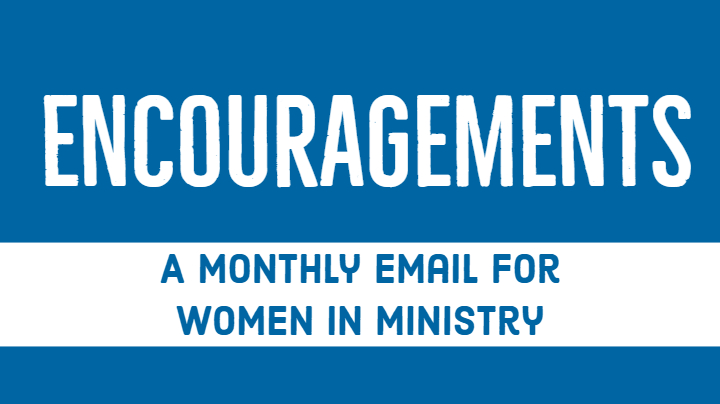The Center for Leadership Excellence, in partnership with COSROW, is pleased to lift up the voices of women in ministry encouraging fellow women in ministry. Please enjoy this month’s Encouragement from Heather Heinzman Lear, Vice President for Grant Administration at The Foundation for Evangelism. Anyone can sign up to receive Encouragement emails here.
Growing up as a Marine Corps brat and then entering itinerant ministry in my 20s, being rooted in one place was not part of my lived experience. Until I was appointed to extension ministry eleven years ago, my longest stretch in one community was my five-year appointment in Raleigh. We moved to Nashville shortly before my son started kindergarten, and now that he’s halfway through tenth grade, he most likely will graduate high school with many of the same kids from his very first day of elementary school.
He has developed roots in various parts of the community through school sports, church, and scouts, but I’ll confess that I often feel a lesser sense of belonging and rootedness now than while living in other communities for a far shorter period of time. So, at least for me, there is something more to flourishing and rootedness than simply longevity.
The Lord proclaims:
Jeremiah 17:5-8
Cursed are those who trust in mere humans,
who depend on human strength
and turn their hearts from the Lord.
They will be like a desert shrub
that doesn’t know when relief comes.
They will live in the parched places of the wilderness,
in a barren land where no one survives.
Happy are those who trust in the Lord,
who rely on the Lord.
They will be like trees planted by the streams,
whose roots reach down to the water.
They won’t fear drought when it comes;
their leaves will remain green.
They won’t be stressed in the time of drought
or fail to bear fruit.
In my current extension ministry appointment, I have the privilege of serving as the grant administrator at The Foundation for Evangelism. While navigating the dynamics of the current church and national landscapes, our staff and board have spent intentional time and energy the past few years discerning who we are, what we do, and in turn, what we don’t do. Jeremiah 17:7-8 has guided our work and been printed on stationery and meeting agendas. We sought to root ourselves with partners and in places that would bear fruit. These two verses immediately follow the description of someone who also finds themself planted, but in a place of drought and stuckness. They remain unmoved but are alone and without nourishment. They have either been stubborn, comfortable, let their ego take control, or maybe they felt the weight of the world rested on their shoulders.
Over the past decade, as I’ve worked with local churches, seminarians, and the wider ecumenical community, I’ve walked beside folks looking for an anchor in a time of uncertainty, conflict, and change. Some choose to dig deep where they are, in what they know, and in what has been, which is understandable. Most of the time though, there isn’t much fruit left to bear. Some of you might currently find yourself in this kind of setting and it’s tough and can be lonely and extremely discouraging. On the other hand, you may find yourself in a place that’s thriving on paper, but you are running on fumes. I’ve personally been in both places with my Enneagram 1 and perfectionist tendencies. What gives me hope and joy in my work and affirmation in my call to ministry is the opportunity to be a catalyst for the leaders and churches willing to step out in faith, take risks, try new things, and open their arms and hearts to new people and ideas. We have awarded grants to over 80 smaller congregations over the past two years who have chosen to not be afraid, to get unstuck, to listen well to their neighbors and the guidance of the Holy Spirit. Regardless of their size, age, and resources, God has called, claimed, gifted, and invited each of us to join in transformational kingdom work. This is where we find our identity, belonging, and true rootedness.
Reflect:
Where are the places you find rootedness, purpose, and belonging? When do you find yourself stressed and fear drought, and do you often carry those burdens for the people you serve? What would it take for you to have a greater sense of flourishing and God’s abundance this year?
Take Action:
Remember and dwell on your own calling and giftedness. How has God placed you where you can be used? At the same time, remember that none of us are called to be desert shrubs. What is something to intentionally add to your calendar that allows you to remain rooted in God’s love?
In partnership,
Center for Leadership Excellence and the Commission on the Status and Role of Women

